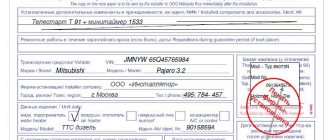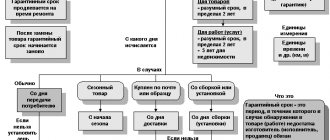The Constitutional Court of the Russian Federation (CC) is an independent body of the highest judicial power that exercises control and judicial proceedings regarding the compliance of legislative and regulatory acts with the fundamental law of the state. According to paragraph 4 of Art. 125 of the Constitution of the Russian Federation, the list of powers of the Constitutional Court includes consideration of complaints from citizens about violations of their constitutional rights and freedoms by legislative norms. Those. if the subject of disagreement is the provisions of a legal act on the basis of which an unfair judicial decision was made, the citizen has every right to send a corresponding application to the Constitutional Court.
Requirements for a complaint
In order for an appeal to be accepted for consideration by the Constitutional Court of the Russian Federation, it is necessary to comply with the requirements of the law:
- Strict compliance with the competence of the Constitutional Court.
- Reasonability of the presented requirements - the applicant must prove that the contested legislative acts actually contradict the Constitution of the Russian Federation.
- Submission by an eligible person - an application will not be accepted from a person whose rights and interests are not directly affected. In this case, the infringement of rights and freedoms will need to be proven using a copy of the court decision (How to file a complaint with the court) or another document confirming the application of the conflicting law when making a court decision
- Openness of data about the applicant and other persons and circumstances significant when considering the complaint.
- Availability of necessary documents.
- Compliance with appeal deadlines.
- Payment of state fees in advance.
- Correct presentation and adherence to business style when writing.
Mandatory information about the applicant
Any official body (and the Constitutional Court is no exception) does not accept complaints submitted anonymously. The court must be aware not only of the applicant’s full name and place of residence, but also of the information presented below:
- Full name and address of the person representing the applicant, his credentials and academic degree (if the representative is not a lawyer).
- Full name and location of the government agency that issued the disputed normative act.
- The essence and details of the allegedly unconstitutional law, indicating the problematic norms, in the applicant’s opinion.
- The main details and progress of the case, the outcome of which was influenced by a document that is dubious from the point of view of constitutional law.
List of accompanying documents
An integral attribute of the application is a package of the following documents:
- receipt of payment of state duty;
- the text of the law to be tested for constitutionality;
- a copy of the court decision based on the subject of the complaint;
- lawyer's certificate, warrant (if the representative is not a lawyer, confirmation of his academic degree and power of attorney are required);
- testimony of witnesses, experts and other materials relevant to the case - as necessary.
Documents or other materials written in another language require translation into Russian.
The application, along with documents and their copies in a single copy, is submitted to the Constitutional Court no later than one year after the last decision in the case involving the application of the contested act by a court of other jurisdiction.
Review costs
The amount of the state fee, paid before submitting the application, is established by Art. 333.23 of the Tax Code of the Russian Federation and is 450 rubles. The following are exempt from this obligation:
- Heroes of the Soviet Union or the Russian Federation.
- Full Knights of the Order of Glory.
- Veterans, disabled people, former prisoners of war;
- Former prisoners of forced detention facilities organized by the Nazis during the Second World War.
Receipt for payment of state duty
Right to appeal
According to paragraph 4 of Art. 125 of the Constitution of the Russian Federation, in case of violation of constitutional freedoms and rights, citizens can seek help from the Constitutional Court. It must be clearly distinguished that the highest body of the judiciary is not a supervisory or appellate or cassation organization. It does not make decisions on specific cases, does not accept complaints about the work of judges, but evaluates the application of the law by other authorities.
That is, if a citizen believes that the “practice of double standards” or incorrect interpretation of norms has led or could lead to a violation of his constitutional rights, he can file a complaint with the Constitutional Court. In this case, the negative consequences should not be abstract, but concern the applicant.
The following can seek justice in a higher authority:
- citizens;
- legal entities;
- human rights ombudsmen in their interests;
- all-Russian bodies and other officials.
They can petition regarding the correct interpretation or constitutionality of:
- federal laws;
- normative acts of the President, State Duma, Federation Council, Government;
- regional regulations, etc.
Important! The complaint will only be accepted if all other legal remedies have been exhausted.
That is, if the case provides for the possibility of a cassation challenge or supervisory appeal, they must be used, and at the highest permissible authority. Only if their decision, in the opinion of the applicant, violates his rights, does he have the right to appeal to the Constitutional Court.
Moreover, a certain period is allotted for this - within 1 year after the consideration of the case in the last permissible instance. If the review was refused due to missing the appeal period, you must contact the Constitutional Court no later than 1 year after the last court decision.
All these requirements for the admissibility of a complaint are reflected in Art. 97 1-FKZ as amended on November 9, 2020. To summarize, we repeat that a citizen can apply to the Constitutional Court:
- When the application of the contested act concerns the violation of his rights.
- After using all other possible methods of protection.
- Within 1 year after the decision is made at the highest judicial or supervisory level.
Note! Constitutional (statutory) regional courts work according to a similar algorithm, but consider the constitutionality exclusively of regulatory acts of the subject. In most regions they have been abolished to save budgets.
Form of compilation
The Constitutional Court accepts the following forms of appeals from citizens:
- On paper.
- In the form of an electronic document.
On paper
The application is written by hand or typed on A4 sheet in accordance with the following structure:
- Part I (introductory). Includes information about the parties to the case (applicant, publisher of the contested act, representatives) and the subject of the complaint (the law or its individual provisions).
- Part II. List of constitutional norms establishing the right to appeal to the Constitutional Court. The reasons for filing an application are also given here.
- Part III. The circumstances that served as the reason for applying to the Constitutional Court are disclosed (a description of all stages of the consideration of the case, in the resolution of which the disputed legislative provisions were applied).
- Part IV. Arguments and arguments regarding the illegality of the subject of the complaint with articles of the Constitution of the Russian Federation supporting its position.
- Part V. Requirements for declaring certain acts or parts thereof unconstitutional.
- Part VI. List of attached documents.
The complaint must bear the signature of the applicant and the date of drawing up the appeal.
The following text requirements are standard for all letters to government agencies:
- refusal to use jargon and obscene expressions;
- readability and clear meaning of what is written;
- consistency of presentation;
- absence of insults and threats against officials and their family members.
An example of a complaint to the Constitutional Court can be found here:
Complaint to the Constitutional Court
Electronic document
The appeal is typed on a PC in the format of an electronic document with the extensions .doc or .docx and is accompanied by all the necessary documents translated into PDF, PNG or JPG format (photographed or scanned in good quality with a distinguishable signature and seal, in black and white color and no resolution less than 200 pixels/inch).
A mandatory requirement here is the presence of an enhanced qualified electronic signature (CES) on the application itself and on each of the attached documents. To do this, you must purchase in advance a cryptographic key confirmed by the FSB of the Russian Federation and a certificate for it from an accredited certification center.
All files expressing and justifying the complaint must be attached to the email. And the letter itself briefly outlines the subject of the appeal, indicates a list of attached documents and other significant materials, as well as the number of pages of each of them.
Recommendations for compilation
To strengthen your complaint, you can use the following recommendations:
- Focus on the full compliance of the appeal with the legal position of the Constitutional Court (an analysis of decisions and complaints already considered by the Constitutional Court can help with this).
- Refer to similar practice of the European Court of Human Rights.
- Give examples indicating a contradictory interpretation of the contested norm.
- Remind about the inadmissibility of formalism, when courts overly focus on the formal side of the application of the law, forgetting about the factual circumstances accompanying this (Resolution of the Constitutional Court of the Russian Federation of July 14, 2003 No. 12-P and Determination of July 12, 2006 No. 267-O).
Shipping methods
To file a complaint with the Constitutional Court of the Russian Federation, a citizen can choose any of the options below:
- by mail or during a personal visit to the CS;
- to your email;
- through the official website.
Actual addresses of the Constitutional Court:
- For postal items - 190000, St. Petersburg, Senate Square, building 1.
- For a personal visit - St. Petersburg, st. Galernaya, building 1 (open from 10:00 to 17:00 from Monday to Thursday and from 10:00 to 16:00 on Friday and on holidays, every working day from 12:00 to 13:00 - break).
- The representative office of the Constitutional Court in Moscow (Ilyinka St., building 21, entrance No. 3) is authorized to provide advice on filing complaints, but is not involved in receiving and considering them.
When sending an appeal by mail, you should use special ones that allow you to track the route of the letter, record its contents and the moment of receipt by the addressee.
Email box for filing complaints with enhanced EPC: [email protected]
To complain to the Constitutional Court, you can also use a special service on the official website of the government agency - https://petition.ksrf.ru. But before gaining access to it, the applicant will need to register:
- Fill out the electronic form - enter your personal, contact information, TIN.
- Attach documentary evidence of information about yourself in the format of scanned copies of the relevant pages of the passport (page spread with photo is required).
- Confirm your account via email.
Registration form:
After these steps, the ability to send a message will become available.
It may take up to three days for the Secretariat to verify the entered information. And if it is unreliable or if other inconsistencies are detected, the applicant is notified and asked to correct the existing inaccuracies within three days. Otherwise, the account and the complaint created through the service will be cancelled.
Types of requests
Any appeal of citizens to the Constitutional Court must be issued in electronic form and strictly comply with the established requirements. The modern constitutional legislation of the country determines the possibility of submitting such a document in three forms:
- request;
- petition;
- complaint.
Let us next consider in more detail the features characteristic of each of them.
As practice shows, a request is the most common form of contact with the authority in question. It is worth noting that it can be submitted by representatives of government bodies, as well as deputies who pursue the goal of reviewing certain cases in strict accordance with the norms of legislation and the correctness of their application. The Arbitration Court often makes requests to the Constitutional Court.
The main purpose of such an appeal is the need to obtain clarification regarding one or another rule of law that is directly related to the case under consideration. The legislator has determined that an appeal in the form of a request is necessary if the president of the country is accused of committing serious criminal acts, as well as high treason.
In cases where bodies or individual civil servants have disputes regarding certain competences, they can apply to the authority in question with a petition. As for ordinary citizens of the country, their associations, as well as foreigners, their appeals must take the form of a complaint.
Consequences
The received appeal undergoes initial registration and is submitted to the Secretariat for consideration, where it is checked for compliance with the jurisdiction of the Constitutional Court, the requirements for the form of preparation and submission, as well as for uniqueness (a re-sent appeal will be returned). If violations are detected, the applicant is sent a notification with a request to eliminate inaccuracies in the format and content of the complaint or to pay a state fee. Once errors are corrected, the application can be resubmitted.
A complaint that has passed the verification stage goes to the judges appointed by the chairman of the Constitutional Court for preliminary consideration, after which a court date is set.
It may take about three months from the moment the application is registered until it is accepted for consideration. And the issue itself is resolved in court within a few hours, if this does not contradict the rules of the meeting. The process involves:
- applicant;
- the state body that issued the contested legal act, or more precisely, its official representative (head, official who signed the act);
- representatives of the parties (optional) - lawyers or other persons with an academic degree in law who are able to document their qualifications.
Additionally, experts, witnesses, and interpreters may be present during the trial.
The decision made by the court is immediately announced to all participants in the open meeting and, within two weeks, is sent to the parties to the process, and is also published in the official publications of the authorities and the “Bulletin of the Constitutional Court of Russia”. Its content may be either full or partial recognition of the act as unconstitutional, or, conversely, absolute confirmation of its compliance with the provisions of the Constitution of the Russian Federation with additional explanation.
In any case, the decision made by the Constitutional Court is literally the ultimate truth, since, according to Art. 79 FKZ dated July 21, 1994 No. 1-FKZ, is not subject to appeal, re-examination and does not require confirmation from a government agency and officials to enter into legal force.
Satisfying the applicant's requirements entails:
- loss of legal force of the contested law or legal act;
- annulment of court decisions and decisions made on the basis of now invalid laws or their individual provisions;
- adoption of a normative act replacing the unconstitutional one in whole or in part, with the introduction of comments on the loss of force of the previous one;
- review of the case taking into account current legislation.
In special cases, the effect of the contested law or its article may be suspended until a final decision is made in the case. But, as a rule, the process of repeal and adoption of a new act takes up to six months from the date of publication of the relevant resolution of the Constitutional Court (Article 80 of the Federal Law No. 1-FKZ).
Stages of consideration of a case in the Constitutional Court
After filing a complaint, the applicant should be patient and prepare for a lengthy legal process, which includes several stages:
- Submitting a claim to the Secretariat . This stage involves a detailed study of the document, searching for errors and inaccuracies. If defects are identified, the complaint is returned to the plaintiff for correction. The procedure is repeated until all inaccuracies are eliminated.
- Preliminary examination of the application . This procedure is carried out by several judges. The petition is studied, subjecting all facts and circumstances to a thorough analysis, after which a decision is made on its admission to consideration. The preliminary review stage can last up to 3 months.
- Court hearing . This stage has the same features as the consideration of the case in the primary court.
- Adoption of the verdict and its publication . Some time after the hearing is completed, the court will issue a ruling. Participants in the proceedings will be called into the courtroom, where the verdict will be announced. After approval of the resolution, it will be published on the website of the Constitutional Court of the Russian Federation, and paper copies will be sent to the participants in the process.
- Clarification stage . The court rarely gives any comments on the case. In most cases, the decision of the Constitutional Court is perceived as extremely clear, legal and does not require explanation or appeal.
Refusal to consider the case can come at any stage, so it is recommended to file a complaint with the help of a competent lawyer. A specialized expert will tell you how to draw up a document correctly, and, if necessary, will independently resolve all issues.










